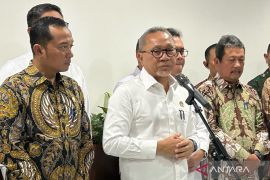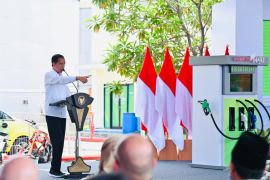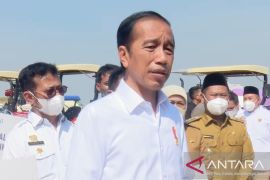Jakarta (Antara) - The government needs to work out an effective food production strategy that will free the country from the need to import food commodities, which only benefits and enriches farmers of other countries, a consultant said. "The government does not have an effective national food production strategy yet. As a result, Indonesia still has to import a number of food commodities, while at the same time the income of farmers at home is still low," Dr Farid Bahar, an agriculture consultant, said here on Tuesday. Farid, who obtained his agronomy doctorate degree from the University of Florida in Gainesville, United States, pointed out that Indonesia did not have food stocks that would last one year because it had no effective food production strategy. "Therefore, the government and the people become confused when a major natural disaster takes place," Farid, who also has a master degree on rice from the University of Philippines in Los Banos, stated. As an adviser of the Secure, Prosperous and Just Indonesia Institute (ASA), Farid who obtained his agronomy graduate degree from the Bogor Institute of Agriculture (IPB), noted that up till now, Indonesia had continued to import different food commodities, such as rice, sugar, salt, onion, beef, chili and soybean. "Indonesia is getting more and more dependent on imports. This problem occurs because supply and demand are not balanced as a result of the absence of an effective food production strategy. Indonesia imports commodities, which can actually be produced at home easily," he added. He further stated that governments in advanced countries, even some in developing ones, such as Thailand and Brazil had devoted serious attention to their agricultural sector and the improvement of their farmers' welfare. In addition, the government had handled about 65 percent of their insurance. In these countries, governments had seriously focused on developing agricultural infrastructure. They had also supported the use of advanced technology so that high production at a low cost could be achieved. "Furthermore, agricultural yields are purchased by the government at appropriate prices. The production surpluses are stocked and exported. All these practices differ from the ones followed in Indonesia," Farid noted. (*)
Import Policy Enriches Farmers in Other Countries
Selasa, 17 September 2013 21:48 WIB







